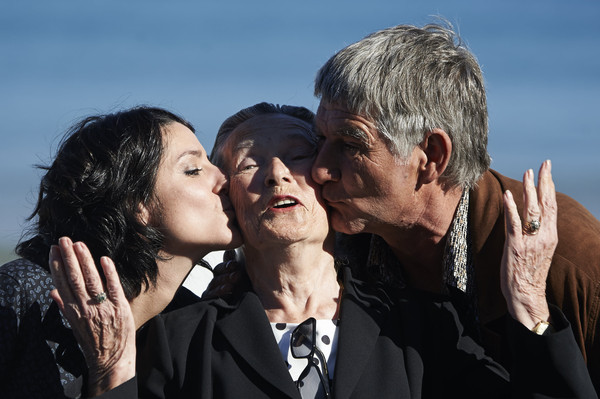@Filmhouse Edinburgh, Tue 11 Oct 2016, as part of Edinburgh Spanish Film Festival
Two different ways of life collide in Basque director’s Asier Altuna’s serenely poetic second feature. The traditional rural way of life embodied by Tomas (Kandido Uranga), and the urban, modern and more chaotic city of his daughter Amaia (Iraia Elias) rub along in an uneasy truce. That is until his elder son leaves and Amaia realises he plans for her to carry on his footsteps.
Altuna’s depiction of family conflict is pure arthouse. Not a sniff of anything resembling melodrama is to be found here. Amama is characterised primarily by silence of two kinds. Firstly,the failure of Tomas to allow room for discussion, retreating into brooding, bruised taciturnity. He is abetted in this by his passive, cowed, evidently long-suffering wife Isabel (Klara Badiola). The second is that of Tomas’ mother Amama (Basque for Grandmother). She watches the internecine familial squabbles yet never comments. She radiates both ethereal wisdom and Earth-mother sturdiness. She is bound to the traditional rhythms of the farm and its attendant mythology, and also takes part in Amaia’s experimental multimedia art installations.
It is this tectonic grind between the old and new, ancient and modern that fascinates Altuna. As you would expect, much is made of the breathtaking scenery. He is obviously deeply rooted in the culture of his Basque home and one can understand the primordial pull the land has for Tomas. Yet, there is glimpses of the abstract and the contemporary. This is mainly demonstrated in the work of Amaia, through which she works through her feelings about her home, embodied by her Amama.
While Amama may seem initially crippled by wilful arthouse density, allowing yourself to surrender to the gentle lilt of its story reveals a surprisingly accessible little fable with universal ideas and themes that are easy to grasp. It’s true that Altuna is more interested in examining these ideas through his visuals rather than through character development – Badiola is particularly badly served, as Isabel is practically melancholy background furniture for the duration – but when the visuals are as stunningly beautiful as this it’s impossible to mind too much.
For a film that makes a virtue of its more avant-grade edge, Altuna takes a slightly obvious route in the story’s resolution, although it is very much in tune with his overall theme, as well as demonstrating the unifying and redemptive power of art. Amama is a rich, earthy and quietly moving film, wonderfully shot and acted. It requires time to settle in and breathe, like a decanted wine, but it is well worth the patience.
